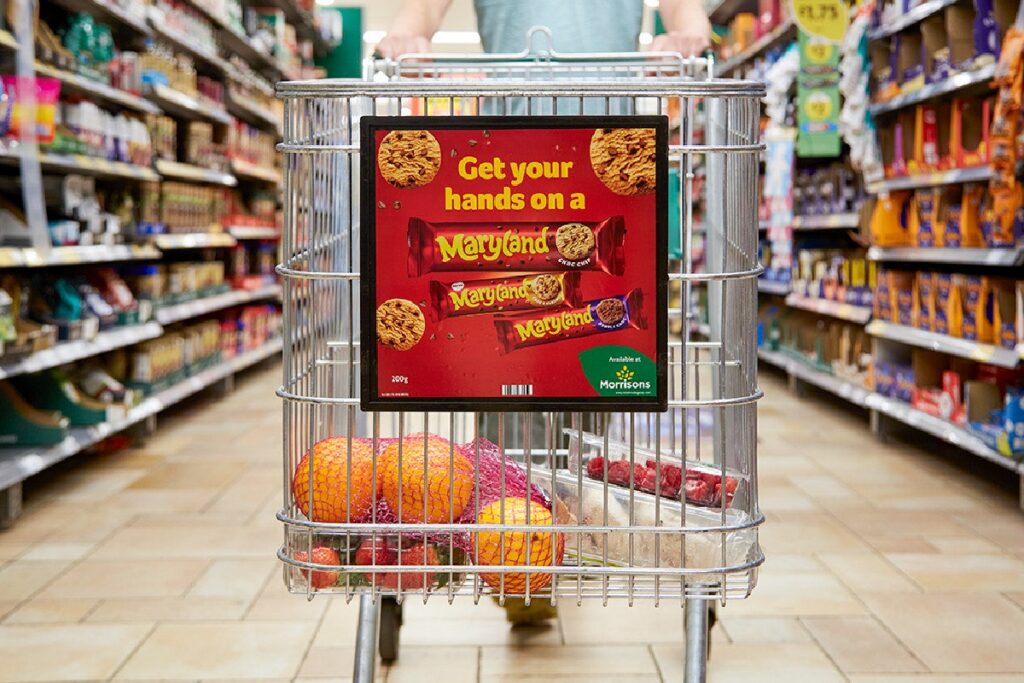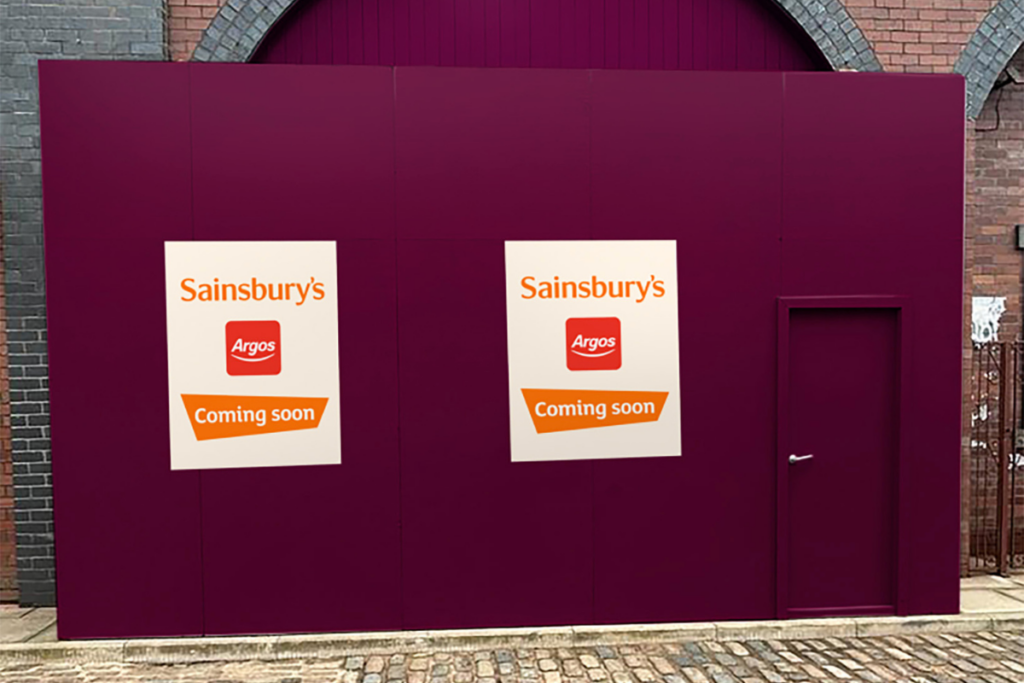As Christmas nears, retailers still have to prepare despite the ongoing and varying levels of restrictions across the country due to the coronavirus pandemic.
While non-essential stores remain closed this month in England and parts of Scotland prepare to enter another lockdown from Friday, more retailers are turning to virtual experiences to keep shoppers engaged over the crucial festive trading season.
For example, in September John Lewis launched a virtual Christmas shop for the first time, letting customers take a 3D tour of their flagship store from their own homes. Patrick Johnson, chief executive of digital solutions firm Hybrid Theory, described this move as “inventive and savvy”.
“Unlike any other year in history, Covid-19 has escalated ecommerce to completely new levels. Businesses that adapt and respond to this increased online purchasing behaviour, like John Lewis’ virtual shopping experience, will reap the rewards,” he told Retail Gazette.
“Consumers flock to personalised experiences and brands that build meaningful connections will flourish. It’s important that marketers ensure this personalisation is felt throughout shoppers’ online journeys to reach new and existing audiences.
“As retailers assess and prove the effectiveness of online shopping experiences, I’d expect more brands to follow suit and not just for Christmas; personalised and engaging shopping experiences should be the goal all year round.
“The global pandemic has forced retailers to find inventive ways to avoid long lines, crowded stores, and concerned shoppers.
“The 2020 holiday shopping season will be increasingly complicated as retailers grapple with new and unpredictable challenges that require the agility to execute at a moment’s notice.”
Owen Hancock, EMEA marketing director at digital partnerships firm Impact, said that because more people will be doing their shopping online than ever before, retailers needed to “swiftly adapt” and put the right digital infrastructure in place to maximise their profits.
“We expect brands in this position to turn to partner marketing, with its mutual value-add positioning and pay-for-performance commercials, it represents a major opportunity for retailers who now rely more heavily on digital,” he said.
“Forward-thinking brands who adopt this approach are seeing mass benefits and turbo-charging their growth.”
Could this move to virtual be the future of holiday seasons or will these virtual measures only last during the current pandemic? Mood Media senior vice president Linda Ralph said that while retailers cannot replicate the same sensory experience as in previous years, there are increased efforts from them to emulate this experience virtually in a bid to retain the optimism and spirit of the festive season in these challenging times.
“It is inspiring to see retailers thinking outside the box”
“Take luxury department store Harrods, for example. With its virtual concierge service offering a tour of the store via video call or requesting specific photos of products sent by WhatsApp,” she explained.
“Department store Liberty is also allowing children to chat with Father Christmas over Zoom, and Selfridges is running virtual shopping appointments with its team of ‘Elfridges’: extending their in-store ambassadors to support customers online.
“What I believe to be crucial here is ensuring the shopping experience remains true to the brand; and this can be achieved by retailers’ big and small.
“Yes, we expect to see the likes of Selfridges, Liberty and Harrods engaging with the public en masse and providing fun experiences that people chat about, but it is encouraging to see that smaller businesses are also replicating their in store experience online, as it is the experience of being in store, surrounded by the wonder of the season that customers crave in these times.”
Hancock said that whether retailers stick to virtual experiences depends on the success of vaccine development and how the pandemic progresses.
“Those retailers who adopt virtual measures may continue to do so even after the pandemic,” he added.
“Some consumers might prefer shopping via virtual format and if the right technology is already in place continuing to leverage it seems to be the most economical decision.
“What we may see however, is a hybrid approach where more retailers invest in both online and offline channels.”
In order for a virtual Christmas to be profitable for retailers, they need to take extra steps to ensure they see profits. Mike Austin, chief executive of personalisation platform Fresh Relevance, said retailers that want to make this virtual Christmas a success should use customer data to deliver a “highly personalised” customer experience.
“By understanding the preferences of each individual customer, such as their preferred price range, product categories or purchasing patterns, retailers can help shoppers find the product that’s right for them quickly – no matter if the consumer is interacting with an email, the website or other channels,” he said.
“This will result in higher conversion rates and ultimately revenue growth.”
However, Hancock highlighted that it was still too early to predict what profit margins retailers would achieve.
“But there are ways in which retailers can get that towards their desired objectives,” he said.
“Looking to ecommerce, providing a full sensory experience is challenging”
“One such way is leveraging affiliate marketing as a cost-effective, efficient method to promote your brand and engage with relevant audiences in a seamless and natural way, as opposed to targeted advertising which many brands will be competing for.
“We also expect that the retailers who are closest to profit are those the leverage automation, both offline and in their digital marketing.”
As new measures continue to be implemented to fit in with the new normal, can shoppers still have an impressive shopping experience through virtual measures? Anna Clymo, senior business consultant at the technology solutions firm BJSS, said retailers needed to be innovative in order to gain and retain new customers. She added that there were several directions they could take in building a virtual shopping shopping experience over Christmas.
“Before committing to any new technology, retailers need to observe how their customers are currently interacting with their brand and sales channels and then determine how and which virtual experiences can make those interactions better,” she said.
“It is also imperative that brands start to review all virtual and physical elements of the customer journey as a whole, understand how they complement each other and identify how they can ensure their virtual world provides the sensory experience customers are craving.”
Austin added that retailers needed to ensure each interaction was relevant and useful.
“Our recent study revealed that almost a third (29 per cent) of consumers find one-size-fits-all marketing around Christmas irritating and more than one in five are frustrated by repetitive sale messages,” he said.
“Providing a targeted and positive online experience to the customer will be critical in driving sales during the festive season.
“This means retailers need to understand what’s important and what isn’t to the individual and act based on these insights.”
As offerings for consumers differ this year, many retailers might consider adapting their marketing campaigns. Johnson said that despite any changes to consumer behaviours, the measures of marketing effectiveness will remain the same.
“Christmas is the most competitive time of year, and understandably where most retailers will see significant increases in their advertising spend,” he said.
“Marketing budgets will understandably see increased scrutiny and many teams will be asked to more with less resource, which highlights the importance of efficiency.
“Consumers are still spending so it’s up to marketers to find those that are spending and connect them with their brands in channels that have seen proven success.
“Advertising campaigns need to prove their effectiveness after all why would any brand spend more for no results.
“To understand effectiveness, marketers need to look beyond sales numbers – whilst clearly important – and analyse the complete customer journey.”
Click here to sign up to Retail Gazette‘s free daily email newsletter


















